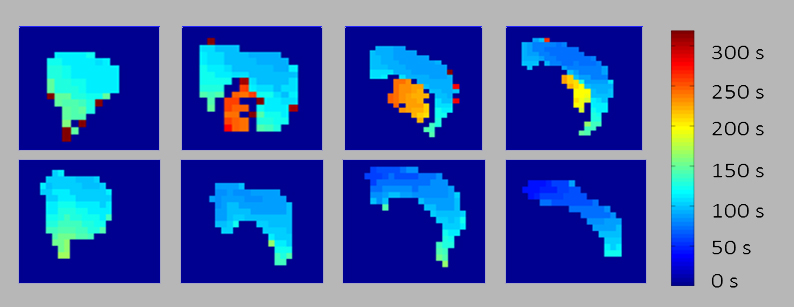New research from CURE-funded researcher Dr. Stuart Cain, in the laboratory of Dr. Terry Snutch, published recently in PNAS, shows that an approved epilepsy drug may be effective in treating migraine in mice.
The drug, pregabalin, is approved in Canada for use in treating neuropathic pain and for epilepsy, but whether or not the drug is effective in treating migraine is not conclusive.
Migraine with aura is a type of debilitating headache for which few pharmacological treatments are available. For people who suffer from migraines accompanied by visual disturbances, including aura, severe headaches are often preceded by a seizure-like phenomenon known as cortical spreading depression (SD). One of the effects of SD is a swelling of the brain resulting from an infusion of water and sodium chloride into the brain’s gray matter.
Dr. Cain and his team have refined a technique for live-brain imaging which enables researchers to watch the brain swelling that occurs during migraine aura in real time. Using in vivo imaging, the study team – led by Dr. Cain – examined pregabalin’s effects on the brain during SD. They observed that the drug was effective at inhibiting SD initiation and invasion. Further, they demonstrated that pregabalin inhibited nerve cell signaling in vitro.

Images represent MRI slices through the brain from front (left) to middle (right) and show how spreading depression (SD) wave front moves through the brain at early timepoints (cold colours) to late timepoints (hot colours). The upper panels show that in transgenic mice with a mild Familial Hemiplegic Migraine Type-1 (FHM-1) mutation (R192Q), SD invades subcortical brain areas (striatum and hippocampus). Lower panel demonstrates that pregabalin prevents subcortical SD in the same strain.
“We’ve described a method of advanced neuroimaging that could be developed clinically to evaluate the the brain swelling that occurs during migraine,” says Dr. Cain.
Drs Cain and Snutch are encouraged by these results, and believe that pregabalin may be effective as a potential treatment for some forms of migraine.
“This research provides strong support for the need to undertake further clinical studies for the use of pregabalin in treating migraine,” says Dr. Cain.


